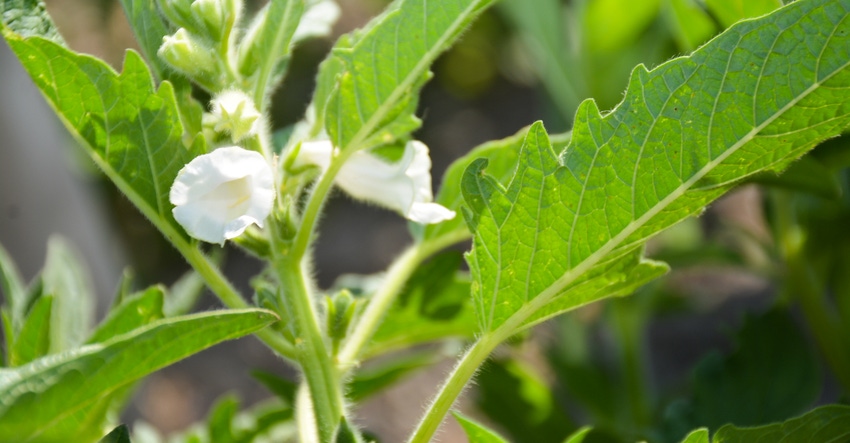February 22, 2021

The Texas A&M AgriLife Research and Extension Center in Uvalde will present a two-day International Sesame Research Conference on Feb. 23-24.
The free online conference will be presented on the Zoom platform and will feature experts in sesame research and production from the U.S., Israel and Australia.
“This two-day symposium will cover a number of current sesame topics and issues, including plant diseases, water use, market analysis and more,” said Kimberley Cochran, event organizer and Texas A&M AgriLife Extension Service plant pathologist based at the Uvalde center. “These will be of particular interest to those interested or involved in sesame production, but anyone can participate.”
Those planning to attend one or both programs should RSVP to Teri Gaston and indicate what day or days they expect to attend.
Feb. 23: Scientists’ Symposium: A Scientist-to-Scientist Dialogue
The primary audience for this session from 9 a.m.-1 p.m. is members of the scientific community. At registration, participants are requested to indicate their area of expertise, title and affiliation.
Presentation topics and presenters will be as follows:
Effect of nitrogen fertilizer on sesame seed composition under Mississippi Delta conditions. Nacer Bellaloui, research plant physiologist, U.S. Department of Agriculture, Stoneville, Mississippi.
Variation in response of hosts, including sesame, Roni Cohen, plant pathologist, Agricultural Research Organization, Newe Ya’aar Research Center, Ramat Yishay, Israel.
Performance evaluation of black sesame lines in Northern Australia, Surya Bhattarai, senior research fellow, Central Queensland University Institute for Future Farming System, Queensland, Australia.
Phenotyping of sesame dry-down using NDVI, Xuejun Dong, associate professor of crop physiology, Texas A&M AgriLife Research, Uvalde.
Early root architecture and development in response to varying soil moisture content and cultivars, Romain Gloaguen, agroecology program coordinator, Department of Agronomy, University of Florida, Gainesville.
Practical considerations for remote-sensing applications with small unmanned aerial systems, Terry Spurlock, associate professor of plant pathology, Dale Bumpers College of Agricultural, Food and Life Sciences, University of Arkansas, Fayetteville.
Osmotic stress-induced transcriptomic changes in sesame roots, Vijay Joshi, AgriLife Research plant physiologist, Uvalde.
Disease challenges to sesame production in Texas, Cochran.
Presentations will be followed by discussion working groups based on interests and areas of collaboration.
Feb. 24: Sesame Research Education Meeting for Producers and Stakeholders
The primary audience for this program from 9 a.m.–noon is producers and other stakeholders in the industry and related fields. Presentation topics and presenters are as follows:
Sesame diseases of South Texas, Cochran.
Effect of nitrogen fertilizer on sesame seed yield and nutrients under Mississippi Delta conditions, Bellaloui.
Breeding U.S. sesame, Caleb Warrington, sesame breeder, Sesaco, Austin.
Trends in wildlife uses in Texas and impact on sesame production, Roel Lopez, director of Texas A&M Natural Resources Institute, San Antonio.
Equinom sesame breeding, Itay Zemach, sesame breeding lead, Equinom, Givat Brenner, Israel.
Variety testing results, Reagan Noland, AgriLife Extension agronomist, San Angelo.
Sesame market outlook, Samuel Zapata, AgriLife Extension economist, Weslaco.
Forecasting and crop risks, Thomas Chappell, assistant professor, Department of Plant Pathology and Microbiology, Texas A&M University, Bryan-College Station.
SesameFARM irrigation model, Glaoguen.
Presentations will be followed by an open question-and-answer session from stakeholders.
For more information, contact Cochran.
Source: is AgriLife TODAY, which is solely responsible for the information provided and is wholly owned by the source. Informa Business Media and all its subsidiaries are not responsible for any of the content contained in this information asset.
Read more about:
SesameYou May Also Like




